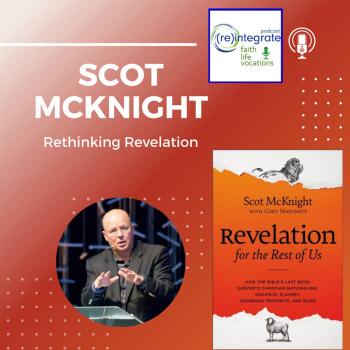Best Practices for Pastors (Part 2).
 For my doctoral dissertation, my research discovered how pastors lead congregants to participate in the mission God through their vocations. Based on that research, I’ve identified some best practices for pastors who would like to see their congregants live as whole-life disciples, where every aspect of their lives are participating in the mission of God in our world.
For my doctoral dissertation, my research discovered how pastors lead congregants to participate in the mission God through their vocations. Based on that research, I’ve identified some best practices for pastors who would like to see their congregants live as whole-life disciples, where every aspect of their lives are participating in the mission of God in our world.
Many evangelical churches have looked to two passages in the New Testament for guidance as to what their purpose should be. The Great Commission (“Go and make disciples of all nations, baptizing them in the name of the Father and of the Son and of the Holy Spirit, and teaching them to obey everything I have commanded you”[1]) and The Great Commandment (“Love the Lord your God…and love your neighbor as yourself”[2]) are important passages from the teachings of Jesus Christ. However, the first commission or commandment that God ever gave humanity is often not spotlighted, what is often referred to as the “cultural mandate” or “creation mandate” that is found in Genesis 1:26-28:
26 Then God said, “Let us make mankind in our image, in our likeness, so that they may rule over the fish in the sea and the birds in the sky, over the livestock and all the wild animals, and over all the creatures that move along the ground.”
27 So God created mankind in his own image,
in the image of God he created them;
male and female he created them.
28 God blessed them and said to them, “Be fruitful and increase in number; fill the earth and subdue it. Rule over the fish in the sea and the birds in the sky and over every living creature that moves on the ground.”[3]
After God created everything in the cosmos, he placed his image into humans with the mandate to continue the creative process of developing the creation.
As Albert Wolters wrote, “Mankind, as God’s representatives on earth, carry on where God left off…From now on the development of the created earth will be societal and cultural in nature.”[4] Michael Wittmer explains, “It is the first command God ever gave us, and he has never taken it back.”[5]
The Cultural Mandate: Foundational to All We Do
The cultural mandate is foundational to a vision of vocation—we are called to develop societal/cultural ideas and artifacts for God’s glory and for the shalom of the world around us. It is, in a very real sense, how we fulfill the Great Commandment to love God and to love others. It is also what it means to make disciples.
Os Guinness defines calling as “the truth that God calls us to himself so decisively that everything we are, everything we do, and everything we have is invested with a special devotion, dynamism, and direction lived out as a response to his summons and service.”[6] Patrick Schreiner says that “disciples are people who go out and give shape to every place.”[7]
As Paul wrote in Colossians, ‘Whatever you do, work at it with all your heart, as working for the Lord, not for men.’”[8]
Churches focus on many very good and important things, but as one of the pastors I interviewed said,
“We’re called as a church to be helping to change and transform our culture, but that’s never on the focus list…churches don’t even talk about that. And that should be (something) that churches are equally engaged in.”
This cultural engagement is rooted in the story of Creation / Fall /Redemption / Consummation.
As another pastor said,
“It goes back to the mandate back in Genesis. The inherent dignity of work. That’s who we were made as individuals, and who we’re made as a people and that’s what the church is to be involved in—that restorative work. It’s largely through people’s vocations that culture changes. So, I want people to think in terms of ‘How can my business be a change agent?’”
[1] Matthew 28:19-20.
[2] Matthew 22:36-40.
[3] Genesis 1:26-28.
[4] Wolters, Creation Regained, 41-42.
[5] Wittmer, Heaven Is a Place on Earth, 124.
[7] Schreiner, The Kingdom of God and the Glory of the Cross, 21.
[8] Colossians 3:23.
Image by Robert. Used with permission. Sourced via Flickr.













